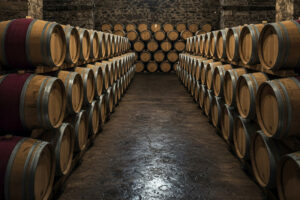The only certainty is that the consumption of wine in Italy is in constant and relentless decline and is now down to 37 liters per capita per year, from 55 in 1997. Everyone has his own ideas on the causes of this decline.
Some say the economic crisis has cut the spending power of Italians, some say there has been a change in the way we eat and drink, some say the greater attention to health and an exaggerated health consciousness is to “blame”, and so on. According to Angelo Gaja, one of the most famous Italian producers, it is simply (so to speak) a matter of "confusion" generated at all levels that alienates young consumers: wine producers, wine narrators, wine critics and wine sellers.
“A wine producer-manager always calls himself a winemaker, even though the Italian dictionary defines such a figure as "he who cultivates (manually) the vineyard”, says Gaja. He also points his finger at the wine trade press,
“There are five times as many wine guides in Italy than in France and a myriad of rankings of the "100 Best Italian wines", inevitably different from each other. There are more journalistic awards established for the benefit of those who write about wine in Italy than in all other European countries put together”. According to Gaja, the confusion also comes from grouping wine with spirits, “wine, because it is right to act on preventing abuse, ends up unhappily united and confused with spirits and drinks spiked with alcohol, despite the fact that its history, culture and values are very different. Not to mention that to promote tourism, wine is dragged “into the streets” when alcoholic beverages should be served only on licensed premises,” adds Gaja.
There is an “abundant and prosperous confusion that is driving young consumers away. The function of wine and food is gradually disappearing in favor of more hedonistic values and drinking with your head instead of your body. So”, says Gaja, “more and more niches of consumers want natural, organic, biodynamic, sustainable, free, clean, proper wine ... and the wine producers fuel the request, invoking new controls and certifications. They are welcome, provided that public money is not used. The "wine code" disciplines practices permitted for production and allows all this and more. It would suffice to make a list of the more invasive practices and require the wine producer to indicate them on the back label”.
What should be done, then? The response of the most famous Italian wine producer is simple: “to counteract the fall in consumption it is necessary to dispel the confusion, and we need respect and courage to achieve this”.
Copyright © 2000/2026
Contatti: info@winenews.it
Seguici anche su Twitter: @WineNewsIt
Seguici anche su Facebook: @winenewsit
Questo articolo è tratto dall'archivio di WineNews - Tutti i diritti riservati - Copyright © 2000/2026






































































































































































































